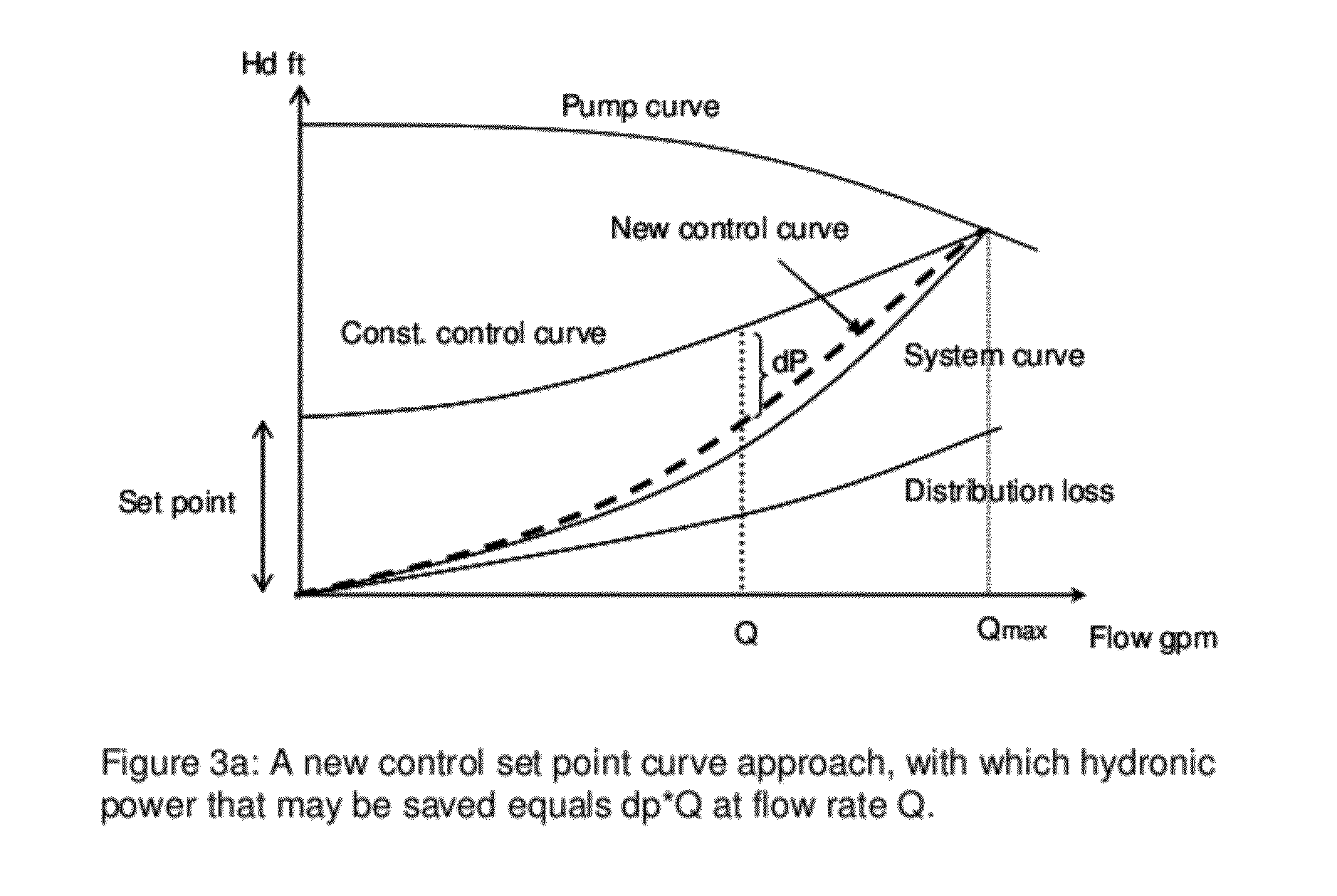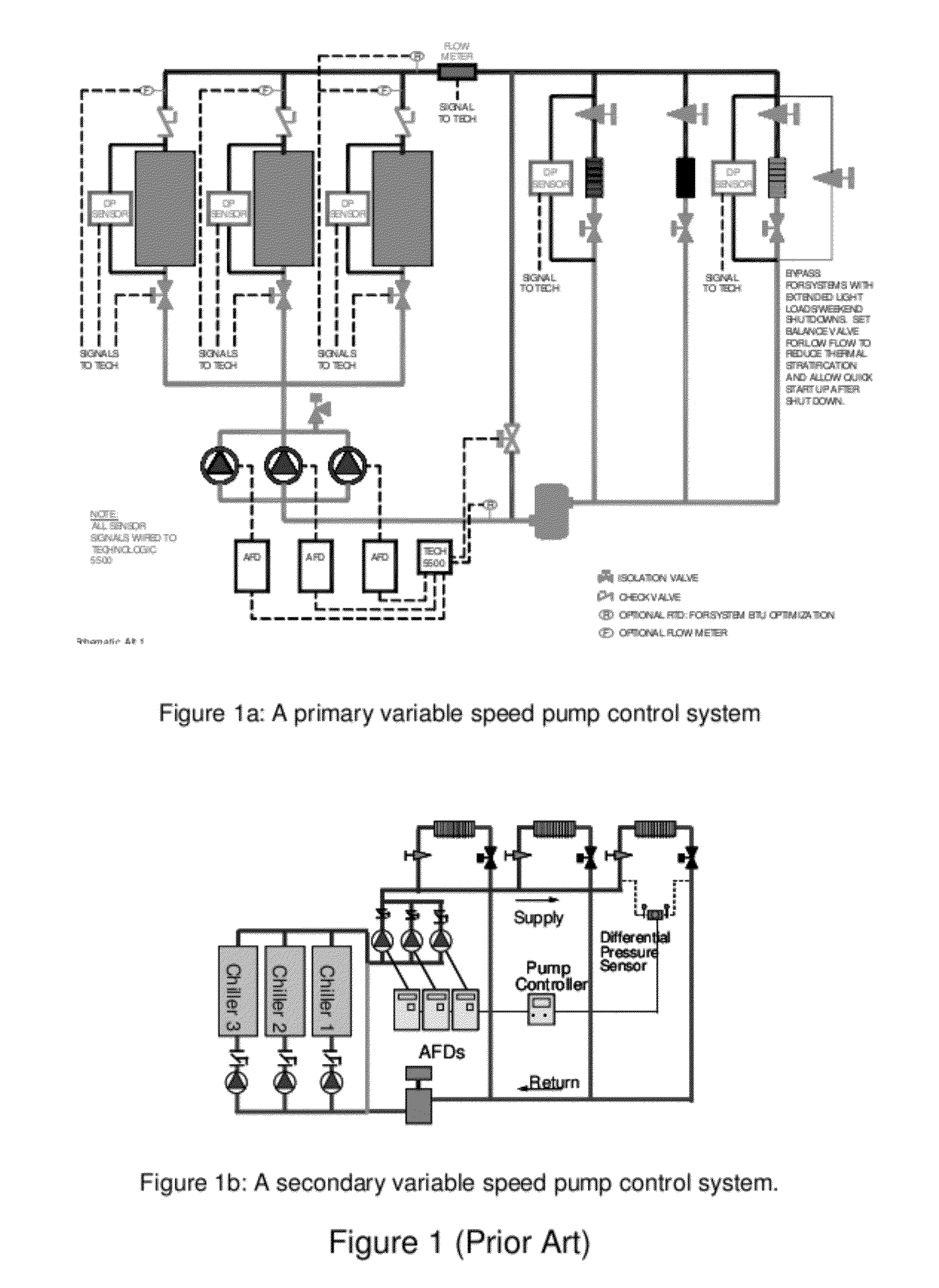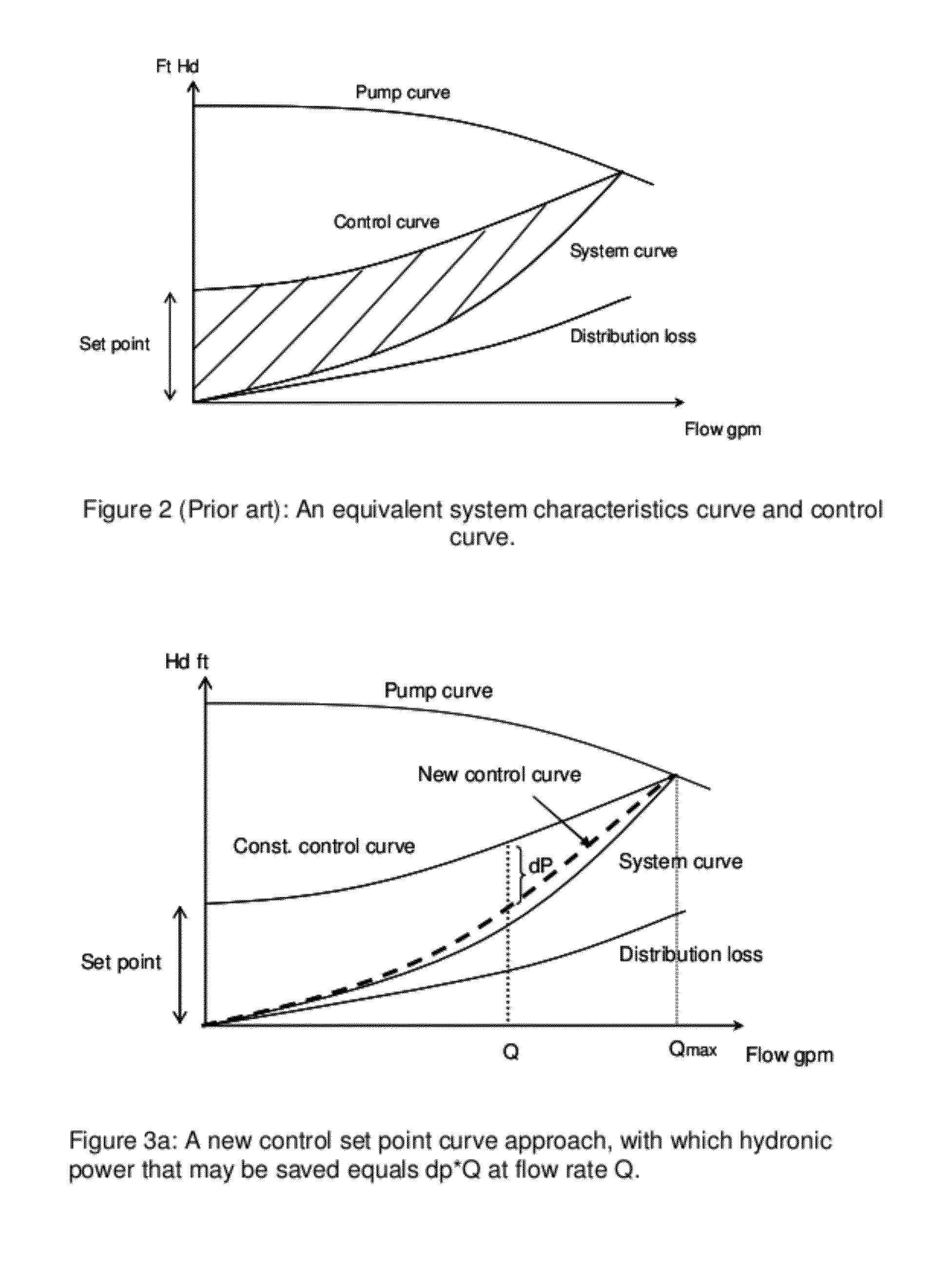Method and Apparatus for Pump Control Using Varying Equivalent System Characteristic Curve, AKA an Adaptive Control Curve
a technology of equivalent system characteristic curve and control curve, which is applied in the direction of fluid pressure control using electric means, non-positive displacement fluid engines, instruments, etc., can solve the problem of waste of operation energy and energy consumption of pump operation by using this method, and achieve the effect of reducing energy consumption and operation costs
- Summary
- Abstract
- Description
- Claims
- Application Information
AI Technical Summary
Benefits of technology
Problems solved by technology
Method used
Image
Examples
Embodiment Construction
[0023]FIG. 3 shows the present invention in the form of apparatus 10, such as a pump controller, featuring at least one processor 12 and at least one memory 14 including computer program code, where the at least one memory 14 and computer program code are configured, with the at least one processor 12, to cause the apparatus at least to respond to signaling containing information about an instant pressure and a flow rate of fluid being pumped in a pumping system, obtain a varying equivalent system characteristic curve, also referred to herein as an adaptive control curve, based at least partly on the instant pressure and flow rate using an adaptive moving average filter, and set up a control set point for a system process variable from the adaptive control curve to obtain a desired pump speed through a pump controller, such as a PID control. As shown, the apparatus 10 forms part of a pump system 5 also having a pump and one or more other pump-related modules 16. By way of example, t...
PUM
 Login to View More
Login to View More Abstract
Description
Claims
Application Information
 Login to View More
Login to View More - R&D
- Intellectual Property
- Life Sciences
- Materials
- Tech Scout
- Unparalleled Data Quality
- Higher Quality Content
- 60% Fewer Hallucinations
Browse by: Latest US Patents, China's latest patents, Technical Efficacy Thesaurus, Application Domain, Technology Topic, Popular Technical Reports.
© 2025 PatSnap. All rights reserved.Legal|Privacy policy|Modern Slavery Act Transparency Statement|Sitemap|About US| Contact US: help@patsnap.com



